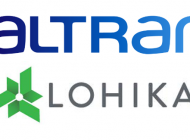Our debate about outsourcing as a driver for innovation continues. In this post we question whether or not it is possible for Belarus to offer its own unique innovative products, competitive on the global markets, whilst its relatively young IT industry is developing mainly in the direction of offshore and nearshore outsourcing.
There are no exact figures how many Belarusian companies export their software development services, and how many produce their own products, although GoalEurope research identified over 160 outsourcing providers, and more than 100 teams participated in Belarusian innovation competition IT Jump. There is a reason why there are so many outsourcing companies: Belarus was the 13th country in the list of the leading outsourcing destinations in 2011. The residents of High-Tech Park Belarus position the country in the high-end segment of the outsourcing market, where complex IT problems need solving. This enables Belarus to grow its market share in the global IT services industry.
However at the same time more and more often industry experts voice concerns that offshore outsourcing may lead to a dead end. According to the general manager of IBA Group Sergei Levteev, it is not right for an outsourcing being the dominant IT industry in the country. He believes that while traditionally Belarus has capabilities in building software products, outsourcing is only a temporary income-generating opportunity.
Owners of other outsourcing companies realize that as well and the trend of investing in developing their own software products is on the rise. For example, in the recent GoalEurope survey of the Belarusian outsourcing companies, 70 per cent said that they are working on their own products. Many such companies are building expertise in a particular vertical industry such as banking or tourism. This allows to understand the market better and focus R&D efforts to make the product competitive. It is still a question though if the product development efforts will result in the unique innovative businesses.
According to Alexander Shatrov, the vice president of Synesis believes that the innovation projects are similar to venture investment. There is a risk, so some of the ideas will fail, but some will become successful.
One of the examples of a successful innovative product is Goldfire Innovator™, which automates and streamlines the process of innovation. Goldfire has been developed by Invention Machine Corporation and is used by the Shell, Boeing, NASA, Procter & Gamble and Samsung amongst other large multinationals.
Another example is Promwad, the largest independent design center of electronics in eastern Europe, the member of IPC, partner of Texas Instruments, Fujitsu and Samsung. Based in Minsk, Promward developed the first in CIS (and second in the world) commercially-available plug computer, TV consoles and satellite navigation systems.
There are also new products, recognized by the experts, which just are at the beginning of its commercialization. For example, Synesis introduced a security monitoring system, which detects security threats in real-time. One must note however, that video surveillance analytics solutions have been commercially available elsewhere since 2003.
Overall, outsourcing and innovation industries in Belarus are co-dependent. Outsourcing allows firms to build expertise in various vertical markets, understand existing solutions and find Western partners and even possible investors. As a result of accumulated knowledge home-grown innovative ideas begin to appear and are likely to take their inventors into the new business direction.
Talk to us if you are interested in finding a reliable software development partner in Belarus or to open an R&D unit there.












